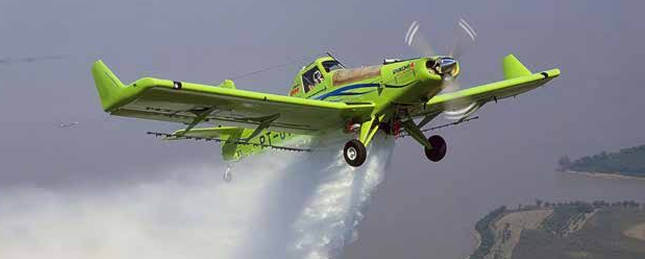Embraer is celebrating the 20th anniversary of ANAC, Brazil's civil aviation authority, certifying its Ipanema EMB-202A to use ethanol as fuel. Originally issued on October 19, 2004, this certification made the Ipanema EMB-202A the first civilian factory-built aircraft to use ethanol as fuel.
In fact, as early as 1985, the Centro Técnico Aeroespacial, a Brazilian Air Force research branch, had been testing versions of the Lycoming IO-540-K1D5 engine with ethanol. This engine was used in the T-25 Universal military trainer built by Neiva, an Embraer subsidiary for the Brazilian Air Force. Coincidentally, the same engine powered the Ipanema from the EMB-201 to the EMB-202A versions. By 2004, ample data was proving that ethanol did not compromise the engine's durability and even provided a slight performance boost, increasing horsepower from 300 to 320.
Since then, according to Embraer, over 570 Ipanemas have left the factory configured to burn ethanol. The factory also offered a conversion program for older Ipanema models with the same engine. As ethanol engines proved as reliable as their Avgas counterparts, ANAC relaxed regulations for converting agricultural aircraft engines, leading many third-party shops to offer the service.
Ethanol has been used as car fuel in Brazil since 1979, in response to the 1975 oil crisis, and is widely available. Until recently, all ethanol in Brazil was derived from sugarcane, as it was cheaper than corn-based ethanol. However, new technologies have made ethanol from corn and even wheat economically viable, allowing regions that don’t grow sugarcane to produce ethanol. While ethanol contains about 30% less energy per gallon than avgas, this is more than offset by the cost difference, as ethanol in Brazil is priced at just 25-30% of the cost of avgas. Ethanol also has a higher octane rating, which contributes to the slight power increase, and is more environmentally friendly, renewable, and unleaded.
The lower cost and wide availability of ethanol fuel revitalized Brazil's piston agricultural plane market. Thanks to ethanol, piston-powered agricultural planes can compete with turbine models in smaller fields. The success of the ethanol-powered Ipanema led to conversions for other engines, such as the Continental IO-520 and IO-550 used in the Cessna 188 series and even the Pratt & Whitney R-1340, found in the Air Tractor AT-401B and radial-powered Thrush aircraft.
Because of ethanol, the Ipanema EMB-202A remained in production until it was succeeded in 2016 by the improved and more productive EMB-203, which continues to be a strong contender in the Brazilian market.









